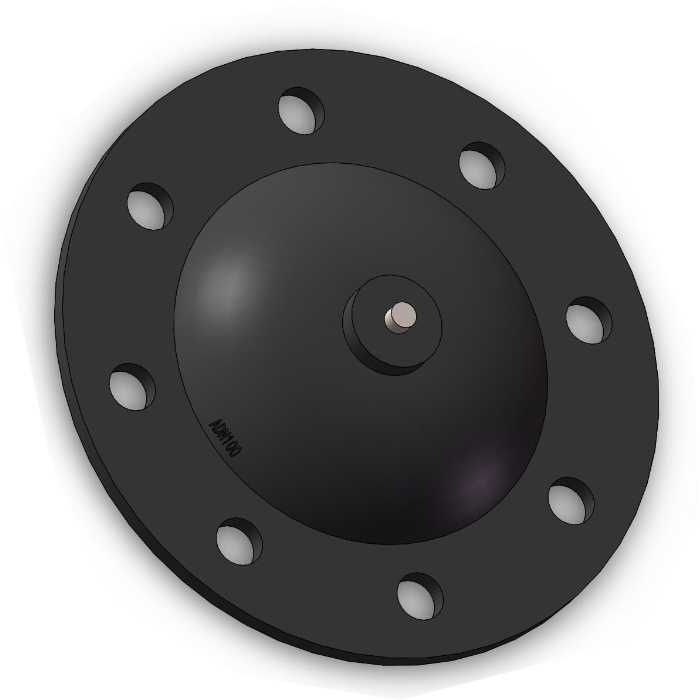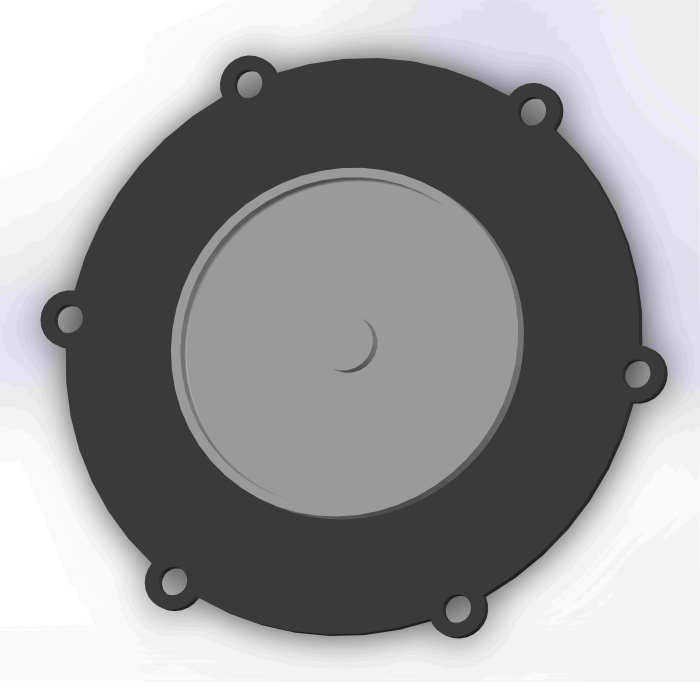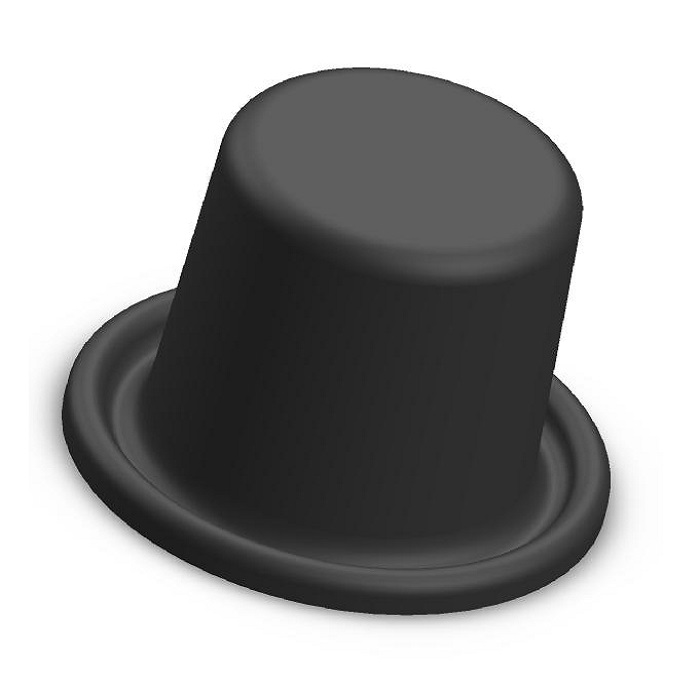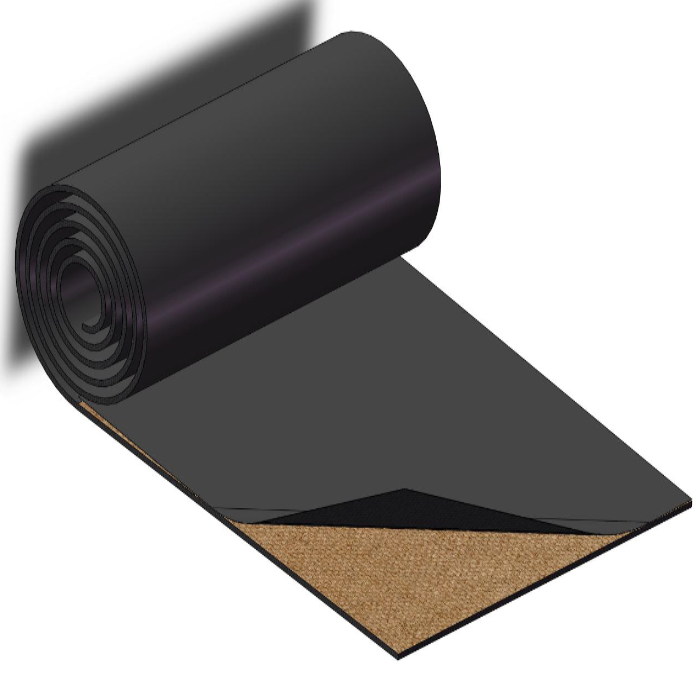GENERAL SEALTECH LIMITED is a renowned manufacturer of high-quality diaphragms, including Diaphragm Valve pump Diaphragms,Teflon / PTFE Diaphragm,Gas meter diaphragms,Rubber diaphragms,Turbo Actuator Waste-gate Diaphragms,LPG CNG Diaphragm,etc. With a wide distribution network, these diaphragms are widely used in various industries around the world. They are commonly used as components of pumps, valves, and actuators, playing a crucial role in regulating fluid flow and transmission. As a flexible barrier, rubber/PTFE membranes can effectively prevent fluid or pollutants from passing between two chambers. These diaphragms can be used as static or dynamic rubber seals in various settings, including pneumatic actuator diaphragms.
| Product name | jet pump diaphragm |
| Place of Origin | China |
| Brand Name | GENERAL SEALTECH |
| Colors | orange,Recommended black |
| Type | Diaphragm |
| Advantage | high strength |
| Certification | FDA,RoHS,NSF,WRAS,National Sanitary Certificate,etc |
| Export region | Oceania,Africa,America… |
| Export country | USA,Japan,Italy,Australia,Ghana,Kyrgyzstan,Estonia…etc |
| Payment Term | T/T |
| Size | Customizable size |
| Product Material | EPDM,NBR,HNBR,FVMQ,etc |
| Surface | Smooth, glossy, textured, matte |
| Packaging Details | carton or according to requirements of the customers |
| After-sales Service | Online technical support |
| MOQ | 100 Pieces(negotiable) |
| Port | Shanghai |
| Application | Seal for Machine,Automotive,Valve…etc |
| Service | OEM/ODM/Private |
| Properties | Fire Resistance,Oil Resistance,Aging Resistance…etc |
| Supply Ability | 50000-200000 Piece/Pieces per Month |
| Lead time (days) | 7-15 (To be negotiated) |
Please note: This table is for reference only, please consult us for specific information.
jet pump diaphragm products typically have high plasticity and can be used in very low temperatures and high temperature ranges. They can also be produced using different technologies such as thin film construction, hot melt construction, and fiber construction.
If the medium used is corrosive, corrosion-resistant diaphragm materials should be selected;
Necessary protective measures should be taken to minimize damage to objects that come into contact with the already installed diaphragm.
All are made of materials that comply with national safety standards, ensuring the safe use of industrial diaphragms.
jet pump diaphragm—FAQs Guide
2.As a jet pump diaphragm manufacturer,how can we guarantee quality?
3.How do jet pump diaphragm contribute to the precision and accuracy of pressure control and regulation systems?
4.Can jet pump diaphragm be customized for specific applications?
5.What is a diaphragm?
6.How do jet pump diaphragm perform in applications where flexibility and rapid response to pressure changes are crucial?
7.How do jet pump diaphragm provide sealing solutions in hydraulic accumulators and fluid reservoirs?
8.About jet pump diaphragm,How can I get the best price and quality?
9.What are the key characteristics that make jet pump diaphragm suitable for sealing and pressure regulation in different systems?
10.Are there jet pump diaphragm designed for quick and easy replacement to minimize downtime in industrial processes?
11.Do jet pump diaphragm have temperature limitations, and how do they perform in extreme temperature conditions?
12.About jet pump diaphragm,Can I get some samples?
13.How does the thickness of a jet pump diaphragm affect its flexibility and pressure resistance?
14.Can jet pump diaphragm be used in air-operated or pneumatic systems, and how do they contribute to system functionality?
1.What types of testing and quality control measures are applied to ensure the reliability and performance of jet pump diaphragm?
To ensure the reliability of the product, our jet pump diaphragm will apply these tests and quality:
1. Visual Inspection: Visual inspection is used to check for any visible defects in the diaphragm material, such as cracks, tears, or other damage.
2. Pressure Testing: Pressure testing is used to ensure that the diaphragm can withstand the pressure it is designed to handle.
3. Leak Testing: Leak testing is used to check for any leaks in the diaphragm material.
4. Durability Testing: Durability testing is used to ensure that the diaphragm can withstand the wear and tear of its intended use.
5. Chemical Testing: Chemical testing is used to check for any chemical reactions that could affect the performance of the diaphragm.
6. Electrical Testing: Electrical testing is used to check for any electrical issues that could affect the performance of the diaphragm.
7. Temperature Testing: Temperature testing is used to ensure that the diaphragm can withstand the temperatures it is designed to handle.
2.As a jet pump diaphragm manufacturer,how can we guarantee quality?
Always a pre-production sample before mass production;Always final Inspection before shipment.
3.How do jet pump diaphragm contribute to the precision and accuracy of pressure control and regulation systems?
Diaphragms are used in pressure control and regulation systems to provide a precise and accurate control of pressure. They are used to separate the pressure sensing element from the process fluid, allowing for a more accurate and repeatable measurement of pressure. The diaphragm also acts as a barrier to prevent contamination of the sensing element, which can lead to inaccurate readings. The diaphragm also helps to dampen pressure fluctuations, providing a more stable and consistent pressure control.

4.Can jet pump diaphragm be customized for specific applications?
Yes, diaphragms can be customized for specific applications. Depending on the application, the diaphragm can be made from different materials, such as rubber, plastic, or metal, and can be designed to meet specific requirements.
5.What is a diaphragm?
A diaphragm is a thin, dome-shaped muscle located between the thoracic and abdominal cavities. It is the primary muscle of respiration and helps to regulate the flow of air into and out of the lungs. The diaphragm also plays an important role in aiding digestion by helping to move food through the digestive tract.
6.How do jet pump diaphragm perform in applications where flexibility and rapid response to pressure changes are crucial?
Diaphragms are ideal for applications where flexibility and rapid response to pressure changes are crucial. They are designed to flex and move in response to pressure changes, allowing them to quickly adjust to changing conditions. This makes them ideal for use in applications such as pumps, valves, and other pressure-sensitive systems. Additionally, diaphragms are often used in applications where a tight seal is required, such as in fuel tanks and hydraulic systems.

7.How do jet pump diaphragm provide sealing solutions in hydraulic accumulators and fluid reservoirs?
Diaphragms provide sealing solutions in hydraulic accumulators and fluid reservoirs by creating a barrier between the fluid and the atmosphere. This barrier prevents the fluid from leaking out and keeps the pressure inside the accumulator or reservoir at a constant level. The diaphragm also helps to reduce the amount of air that can enter the system, which helps to reduce the risk of cavitation.
8.About jet pump diaphragm,How can I get the best price and quality?
The price depends on the quantity, design and size. If you order more, the price and shipping will be cheaper.
9.What are the key characteristics that make jet pump diaphragm suitable for sealing and pressure regulation in different systems?
As a professional jet pump diaphragm manufacturer, we believe that its key features include:
1. Flexibility: Diaphragms are flexible and can be designed to fit a variety of shapes and sizes. This allows them to be used in a wide range of applications.
2. Durability: Diaphragms are made from strong materials that can withstand high pressures and temperatures. This makes them suitable for use in high-pressure systems.
3. Low Maintenance: Diaphragms require minimal maintenance and can be easily replaced when needed.
4. Low Cost: Diaphragms are relatively inexpensive compared to other sealing and pressure regulation solutions.
5. Versatility: Diaphragms can be used in a variety of applications, from automotive to industrial.

10.Are there jet pump diaphragm designed for quick and easy replacement to minimize downtime in industrial processes?
Yes, there are diaphragms designed for quick and easy replacement to minimize downtime in industrial processes. These diaphragms are typically made of materials such as rubber, silicone, or PTFE, and are designed to be easily replaced without the need for tools or special equipment. Additionally, some diaphragms are designed with quick-connect fittings to further reduce downtime.
11.Do jet pump diaphragm have temperature limitations, and how do they perform in extreme temperature conditions?
Diaphragms do have temperature limitations, and their performance in extreme temperature conditions can vary depending on the material used. Generally, diaphragms are designed to operate within a temperature range of -40°F to +250°F (-40°C to +121°C). In extreme temperature conditions, the diaphragm may become brittle and crack, or the material may become too soft and lose its shape. Additionally, the diaphragm may become distorted due to thermal expansion and contraction.
12.About jet pump diaphragm,Can I get some samples?
Yes, Sample order is available for quality check and market test. But you have to pay the express cost.

13.How does the thickness of a jet pump diaphragm affect its flexibility and pressure resistance?
The thicker the diaphragm, the less flexible it will be and the more pressure it will be able to resist. This is because thicker diaphragms are more rigid and can withstand higher pressures without deforming. Thinner diaphragms are more flexible and can deform more easily under pressure, but they are also less resistant to pressure.
14.Can jet pump diaphragm be used in air-operated or pneumatic systems, and how do they contribute to system functionality?
Yes, diaphragms can be used in air-operated or pneumatic systems. Diaphragms are flexible membranes that are used to separate two different areas of a system. They are used to control the flow of air or other gases in a system. They can be used to regulate the pressure of the system, to control the flow of air, and to act as a check valve. Diaphragms can also be used to dampen vibrations and reduce noise.
Tags: ameda silicone diaphragm,ford v8 fuel pump diaphragm,honda bf50 fuel pump diaphragm,pond air pump diaphragm,pump diaphragm manufacturer

